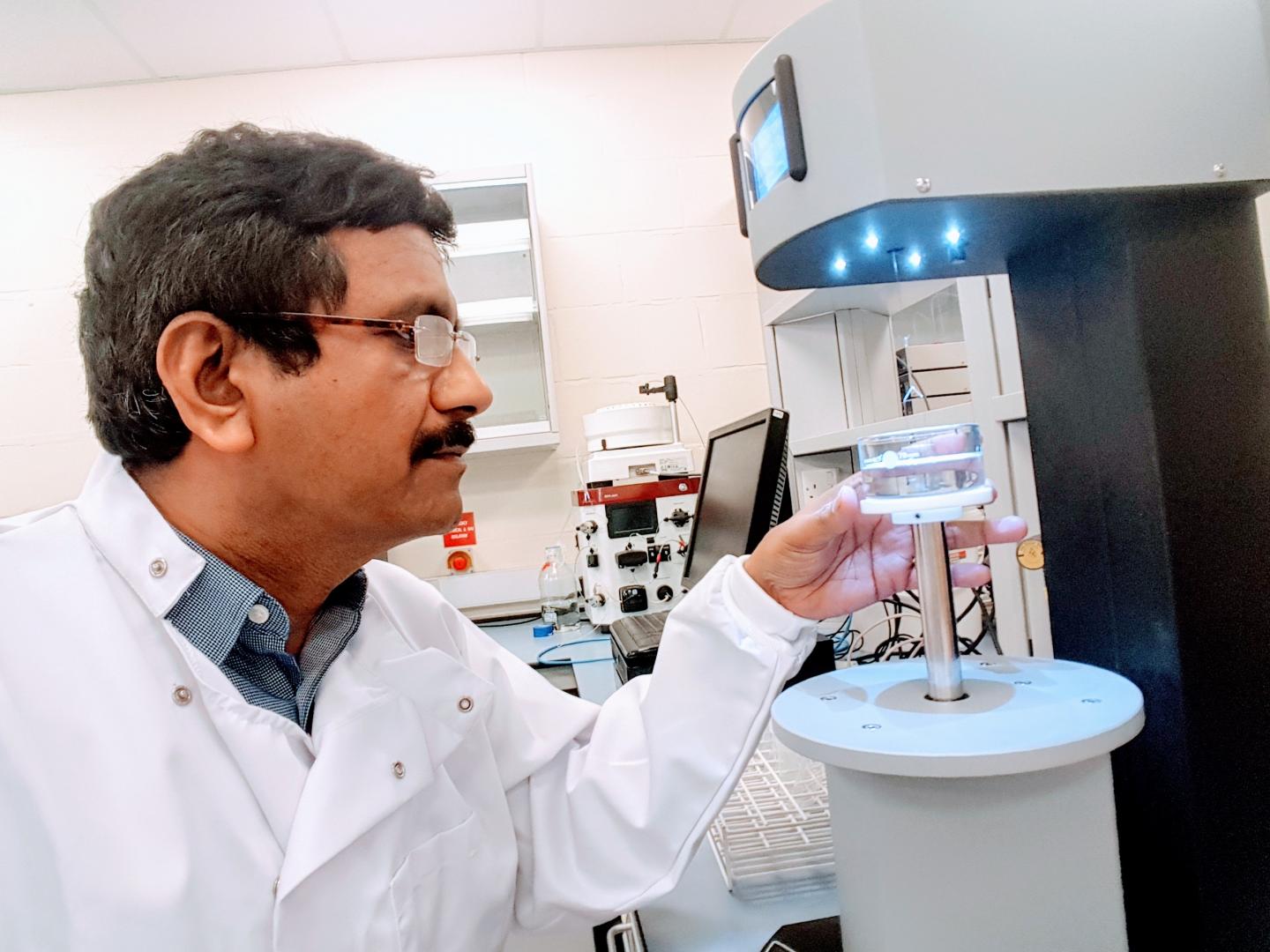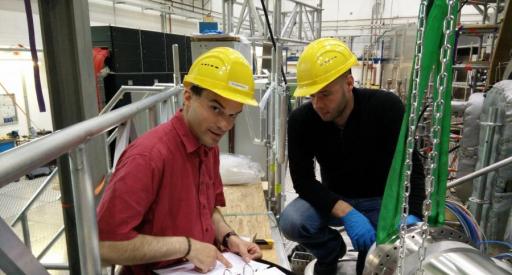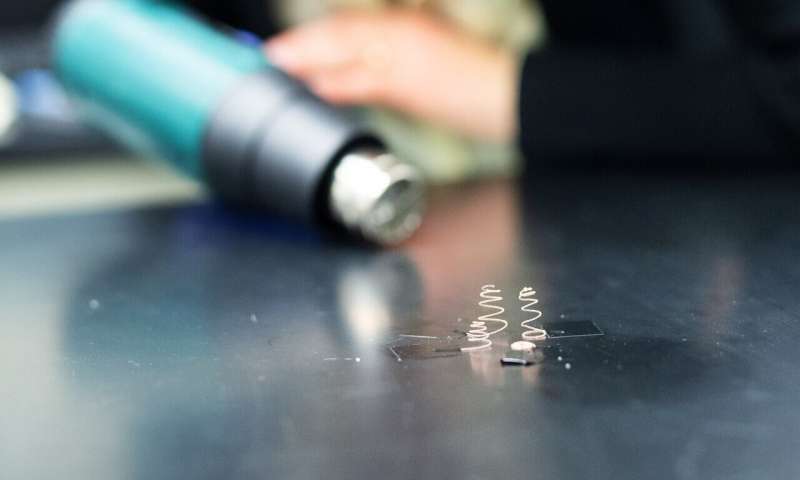
A scientist has discovered a way of using one of the world’s most abundant natural resources as a replacement for manmade chemicals in soaps and thousands of other household products.
An innovative research project, published this month and led by the University of Portsmouth, has demonstrated that bails of rice straw could create a ‘biosurfacant’, providing an alternative non-toxic ingredient in the production of a vast variety of products that normally include synthetic materials which are often petroleum based.
The biotechnology project set out to solve one of the planet’s most pressing environmental problems, looking for a way of reducing the amount of manmade chemicals in everyday life. It has been co-supervised by the University of Portsmouth’s Centre for Enzyme Innovation, working in conjunction with Amity University in India and the Indian Institute of Technology.
The study was looking for a natural replacement for chemical surfactants, a main active ingredient in the production of cleaning products, medicine, suncream, make-up and insecticides. The surfactant holds oil and water together, helping to lower the surface tension of a liquid, aiding the cleaning power and penetration of the product.
Dr Pattanathu Rahman, microbial biotechnologist from the University of Portsmouth and Director of TeeGene, worked with academics and PhD Scholar Mr Sam Joy from 2015 to create a biosurfacant by brewing rice straw with enzymes. The scientists believe this environmentally friendly method results in a high quality ingredient that manufacturing industries are crying out for.
Dr Rahman said: “Surfactants are everywhere, including detergent, fabric softener, glue insecticides, shampoo, toothpaste, paint, laxatives and make up. Imagine if we could make and manufacture biosurfacants in sufficient quantities to use instead of surfactants, taking the manmade chemical bonds out of these products. This research shows that with the use of agricultural waste such as rice straws, which is in plentiful supply, we are a step closer.”
Scientists behind the research believe the use of biosurfactants created from rice straw or other agricultural waste could have a positive ecological effect in a number of ways:
- There is significant concern about the impact of the chemical surfactants used in household products, most of which ends up in the oceans.
- Rice straw is a natural by-product of the rice harvest, with millions of tonnes created worldwide every year.
- Farmers often burn the waste producing harmful environmental emissions. Using it to create another product could be an efficient and beneficial recycling process.
- There could also be an economic advantage to using biosurfacants produced from agricultural waste.
Dr Rahman explains: “The levels of purity needed for biosurfactants in the industries in which they’re used is extremely high. Because of this, they can be very expensive. However, the methods we have of producing them make it much more economical and cost efficient. It’s a very exciting technology with tremendous potential for applications in a range of industries.”
The study shows that biosurfactants could be a potential alternative for the synthetic surfactant molecules, with a market value of $US2.8 billion in 2023. The considerable interest in biosurfactants in recent years is also due to their low toxicity, biodegradable nature and specificity, which would help them meet the European Surfactant Directive.
Dr Rahman says the process of producing biosurfacants calls for new attitudes to soap and cleaning products.
He explains: “Most people consider soap to be an effective means of removing bacteria from their skin. However, we have flipped this concept on its head by discovering a way to create soap from bacteria. They have anti-microbial properties suitable for cosmetic products and biotherapeutics. This approach will channelise the majority of the waste management solutions and could create new job opportunities.”
Learn more: Soap from straw — Scientists develop eco friendly ingredient from agricultural waste
The Latest on: Biosurfacants
[google_news title=”” keyword=”biosurfacants” num_posts=”10″ blurb_length=”0″ show_thumb=”left”]
via Google News
The Latest on: Biosurfacants
- Oil Spills Newson April 25, 2024 at 5:00 pm
July 22, 2023 — Can biosurfactants increase microbiological oil degradation in North Sea seawater? An international research team has been exploring this question ... Researchers Cultivate ...
- UNICEF Backs Young Innovators To Tackle The Climate Crisison April 17, 2024 at 12:50 pm
Two dozen promising solutions for adapting to or mitigating the effects of climate change — each one led by a young person — have been selected for acceleration.
- The 5 best dog shampoos of 2024, according to expertson March 29, 2024 at 1:27 pm
It also contains naturally occurring biosurfactants, which are produced by microbes and boost the shampoo's cleaning power. It is available in four natural, essential oil-based fragrances ...
- McDermott Reaches Mechanical Completion on Pioneering Biosurfactants Projecton March 28, 2024 at 4:00 am
The project positions Evonik, a specialty chemicals company, as a pioneer of high-quality, sustainable biosurfactants on a commercial scale. The scope of the contract included engineering ...
- Biosurfactants Market Strategies for Success Leveraging Observational Revelations in Consumer Researchon March 27, 2024 at 12:16 am
Report Ocean has published a new report on the “Biosurfactants Market” in diverse regions to produce a report with more than 250+pages. This market report is an excellent fusion of qualitative and ...
- Evonik secures European R&D loan for eco productson March 24, 2024 at 5:00 pm
Evonik products that it says are sustainable include biosurfactants, lipid nanoparticles, and membranes for gas filtration. The loan is valid for 6 years from the date of first use. Evonik’s ...
- Fermented plant drinks stir up health benefits in dairy alternative marketon March 11, 2024 at 5:00 pm
In place of milk proteins and phospholipids that act as emulsifiers in dairy milk, plant-based beverages use polysaccharides, proteins, phospholipids, and biosurfactants that can either be ...
- Never too old to start afreshon October 22, 2023 at 3:49 pm
Ten years down the line, Proklean has solutions for the paper and pulp sector, waste water management and is also dabbling in biosurfactants. Primarily a B2B startup, the company also sells ...
via Bing News










